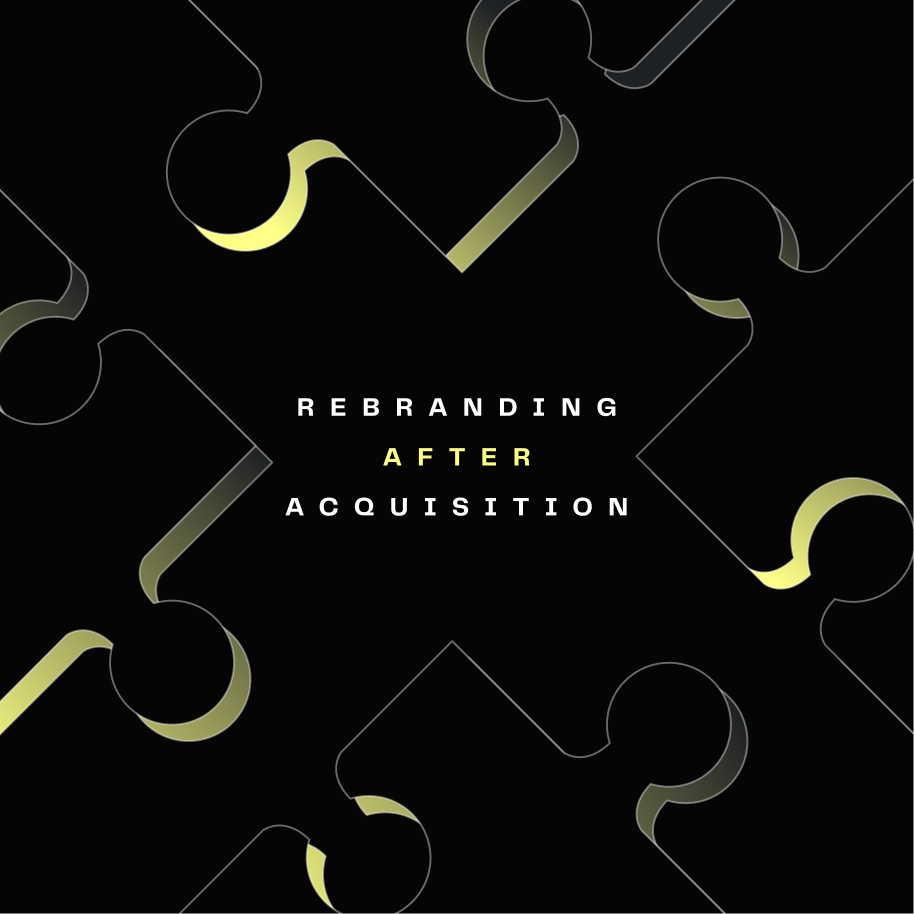‘Word of the Year’: Why now?
In a time of widespread misinformation, deep fakes and AI-driven content, the editors at Merriam-Webster have crowned their “Word of the Year.” It’s authentic, based on an uptick in user searches over the past 12 months. (For what it’s worth, coronation was also at the top of everyone’s mind.)
Authentic can be a tricky word to define. In fact, according to Merriam-Webster:
“Authentic has a number of meanings, including ‘not false or imitation,’ a synonym of real and actual; and also ‘true to one’s own personality, spirit or character.’ Although clearly a desirable quality, authentic is hard to define and subject to debate — two reasons it sends many people to the dictionary.”
For brands, the distinction is even murkier.
So what is brand authenticity?
First things first, brand authenticity is different from personal authenticity.
One definition of brand authenticity is a perception that a company delivers on what it says it will and that it inspires people to be true to themselves. Another definition is “the extent to which a brand is considered unique, legitimate, truthful to its claims and lacking falsity.”
Put another way, this means a brand passes the smell test — an important factor in building long-term trust. In fact, one survey found that 88% of consumers say authenticity is important when deciding which brands to support.
Brand authenticity, values & a polarizing society.
The good news in all of this is that trust and loyalty for brands has never been higher, according to a recent report. Surprisingly, amid a climate of fear, uncertainty and doubt, a majority of people now view businesses as the most trusted institutions worldwide — ahead of governments, NGOs and the media.
What’s more, 63% of consumers say that their personal beliefs and values drive how they buy or advocate on behalf of brands. The rub is that consumers also want brands to be more socially engaged, even if it means facing boycotts or other types of backlash.
A solution proposed by the above report is to provide trustworthy information — actions based on science, along with follow-through on values over time — to insulate your brand against politicization.
What brands are perceived as authentic & why?
Among the most trusted brands in the world are LEGO, Crayola, Whirlpool, Hot Wheels, Costco, Honda, Dollar Tree, IKEA, Under Armour and The North Face — all in the top 10 — followed by The Home Depot, Chick-fil-A, Patagonia, Lowe’s, Walgreens, Coors, PlayStation, Chipotle, Domino’s and Heineken, according to a recent study.
And what makes these brands authentic in the eyes of consumers? The study cites being “ethical,” “wholesome” and “high quality” as the main brand attributes, with the top actions taken by brands being “treats customers well,” “owns up to its mistakes” and “cares about the social impact of their business.”
With that in mind, let’s take a look at what we can learn from some particularly authentic brands.
A lesson in brand authenticity from Patagonia: Put your money where your mouth is.
Since 1985, Patagonia has been both vocal and active about climate change, donating $140 million to environmental organizations and reducing its own environmental impact through its “1% for the Planet” initiative. Then, going even further in 2022, Patagonia’s founder announced that all profits not reinvested into the business would go to a nonprofit collective fighting climate change.
This move embodies authenticity — and not just because sustainability has been a consistent message from Patagonia over time. It also works because Patagonia’s business rests in selling products designed to be used in the great outdoors.
The result? Patagonia was found to have the best reputation among high-visibility brands in the U.S., according to a 2023 poll. And now, when you search for “authentic brands” on Google, Patagonia’s name comes straight to the top.
A lesson in brand authenticity from Aerie: Take actions that resonate with your audience.
Although millennials make up the largest demographic in the U.S., Gen Z — those born between 1997 and 2012 — are expected to become the nation’s largest demographic by 2034. And when it comes to Gen Z, authenticity is the most important value.
Aerie, American Eagle’s lingerie brand, has come out ahead in speaking to Gen Z. In 2014, Aerie launched its “#AerieReal” campaign, which promised to feature people of all shapes and sizes in unretouched photos — standing out in a sea of retail competitors featuring heavily edited photos of supermodels.
One of the early campaign tactics was a web tool allowing users to select images of clothing on people with different body types. Since then, Aerie’s imagery has expanded to include both ethnically and ability-diversemodels.
At this intersection of real-people imagery, personalization and messages about confidence and empowerment, Aerie hit the sweet spot. Sales skyrocketed. And by meeting Gen Z and millennials where they were at the time (on Instagram, with hashtags), Aerie was able to generate branded content that resonated with its audiences. The company also inspired customers to create their own posts referencing the campaign.
Even better, Aerie began supporting related organizations (such as the National EatingDisorders Association and Special Olympics) and, in 2022, launched the Aerie Real Foundation, which has donated over $1 million in grants to nonprofits.
Like Patagonia championing sustainability, it suits Aerie to celebrate diversity and body positivity, given the brand’s expertise and goals. After all, no one wants to buy something they won’t feel good in.
A lesson in brand authenticity from LEGO: Reclaim the conversation if it goes off course.
LEGO, a highly regarded brand by multiple sources, has demonstrated there are ways to recommit to values that have fallen by the wayside.
In 2014, the company ended a 50-year partnership with the Shell oil company after some bad PR. In response to the reputation hit, LEGO doubled down on its commitment to sustainability, securing partnerships with organizations like the World Wildlife Fund, investing in a sustainable materials strategy and rethinking its supply chain to be more environmentally friendly. This strategy worked, because it was grounded in true introspection and actual action.
Again, the message is credibly aligned with the brand’s core business. In the words of LEGO’s owner at the time:
“Our mission is to inspire and develop the builders of tomorrow. […] The investment announced is a testament to our continued ambition to leave a positive impact on the planet, which future generations will inherit.”
With brand authenticity, alignment & expertise are key.
While the above examples are inspiring, we recognize that not every company can, nor should, do something as bold as donating all proceeds to climate change. That’s just not practical.
Messaging about climate change, for example, may ring hollow and come off more like greenwashing if it’s not based in action or believably linked to your line of business. Celebrating body positivity makes sense for an apparel brand, but less so for others.
Find the causes your brand can legitimately speak to and work toward in business practice.
How to ensure your brand stays authentic.
Below are even more tips to help you build an authentic brand.
- Be true to your brand values, and take action. Just as no two brands are alike, one company’s authentic won’t be like another’s. Define what makes your brand unique — and deliver on it. Also, investigate your company’s social impact, and look for ways to advocate for change that align with your business.
- Establish a vision, and be consistent. Once you’ve identified your brand’s values and how to act on them, stay the course. Consistency not only helps people connect more immediately with your brand but also builds trust over time.
- Adapt, as necessary. Evolving your brand doesn’t mean waffling on your values or being inconsistent; it just means regularly re-evaluating how your business aligns with your values in practice and course-correcting, as needed. Evolving also means monitoring where and how to communicate with your customers. A Facebook poll that landed yesterday is the TikTok challenge that blows up tomorrow. Similarly, a message that reads as authentic one year may lose credence as the social needle moves. Never stop learning, growing and adjusting — without losing sight of the true north of your brand.
- Be transparent. Communicate with your audiences about your business practices and goals. A peek behind the curtain lends authenticity and can deepen understanding and connection.
- Be conscientious and purposeful in using AI. Authenticity and AI may seem like strange bedfellows, but they can actually enhance each other. Just make sure you have an AI marketing strategy in place, provide clear guidelines about creative best practices and foster an understanding that AI outputs should be shaped by human experts.
- Look to user-generated content. People are 2.4 times more likely to rate content generated by other people as more authentic than content generated by brands. Consider sharing social media posts created by your audience, featuring customer reviews on your website and engaging with your most loyal followers to help them help you spread the word.
Keep it real.
Authenticity is certainly elusive. It’s a quality that, if over-performed, actually isn’t that authentic at all. For brands in particular — multifaceted organizations with multiple stakeholders — authenticity can be even harder to define, let alone demonstrate. But it really comes down to just being honest and delivering what you say you will. Perhaps best of all, the beauty of authenticity is that no person or entity is ever expected to be perfect. Just keep it real, and you will build a brand that stands the test of time.



